Southeast diversity spells success for Hutlet Seeds
Advertisement
Hey there, time traveller!
This article was published 08/10/2024 (512 days ago), so information in it may no longer be current.
After more than four decades at the helm, Marc Hutlet has decided to turn the ever- expanding seed company at Dufresne over to the next generation. But while his daughter Karis and Ben Signer are handling things on a day-to-day basis, Hutlet is not completely out of the picture just yet.
Like the farmers he has been serving for generations, he still isn’t ready to retire, and his dedication drives him to keep a finger on the pulse of the agricultural diversity that has seen southeastern Manitoba grow and flourish.
Many of those farmers, who also have turned their operations over to the next generation, joined Marc at the annual fall crop tour the first week in September. Hutlet was very much present, visiting with customers, while Karis and Ben talked about the soybeans and corn that made up the two test plots on Provincial Road 210, east of Landmark.
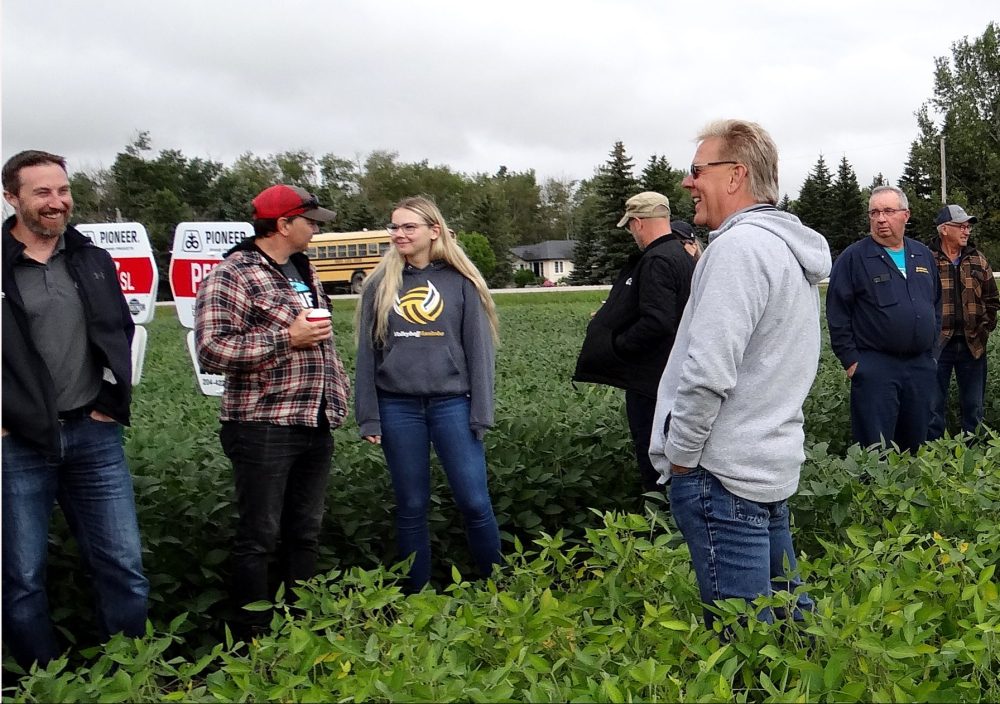
While the company agronomists were wrapping up their presentation, Marc was back at the road, firing up the barbecue to serve up smokies to the hungry crowd attending the event. There were probably close to 80 farmers there, some for the soybeans, some for the corn, Hutlet said.
The annual crop tour, approaching its 40th year, gives Marc Hutlet Seeds the opportunity to rate the performances of several varieties of corn and soybeans during the growing season, and at the same time, introduce a new variety or two that will do well in the soil conditions and climate of southeastern Manitoba.
The five varieties of soybeans, planted in eight rows of each, have turned around since the cold, saturated conditions in the first half of the season. Hutlet Seeds usually includes one or two new varieties in their test plots, but for next year Pioneer Hi-Bred is launching five new varieties of soybeans with a new genetic platform of herbicide tolerance called Enlist E3 and all five will be in Hutlet test plots and commercial fields in 2025.
In the Southeast, this year’s soybean crop is not expected to be as good as last year’s, but 2023 was a high-water mark year for soybeans, Hutlet said.
The same challenges apply to growing corn this year and producers may be running out of time for grain corn to mature before a killing frost. Some will cut the corn as forage instead of waiting to harvest the crop, but most will wait for the first frost before making that decision, Hutlet said.
Marc Hutlet Seeds had its beginnings on the family farm north of Giroux where Marc was a salesman for PAG Cargill, selling sunflowers. It wasn’t long before corn was added to his list and he recalls that Ed Oswald at Friedensfeld was one of his first grain corn customers.
From the beginning, when he was selling 15 to 20 bags of corn seed to a dozen customers, Marc Hutlet Seeds soon outgrew the family farm location and moved to the yard at Dufresne.
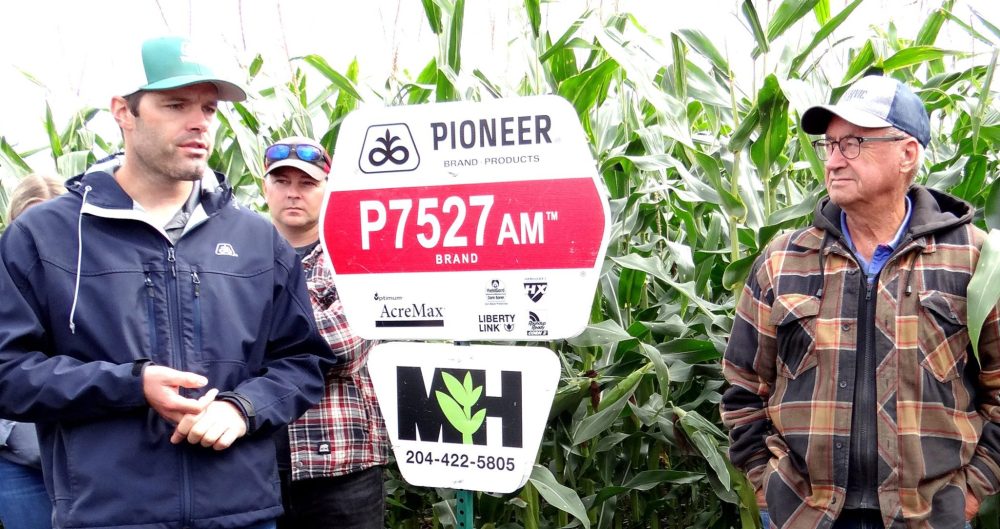
From that start in 1982, Marc says he built the business slowly and when he made the decision to focus all his energy on lining up more seed customers and being more connected with his existing customer base, Marc Hutlet Seeds grew rapidly.
The company today includes two full-time sales agronomists, a full-time administrator, a full-time seasonal driver, as well as summer students. Marc’s wife Marilyn still helps out in the office during spring pick-up days, although she is more grandmother than staff, these days, Hutlet says. Their daughter Karis is one of the two agronomists at Hutlet’s and a part of the shift in ownership. She has been with the company on a full-time basis since graduating from the University of Manitoba with an agri-business degree in 2017.
Ben Signer, who has been with Hutlet for a decade, is now the lead agronomist, according to Karis.
Barb Dueck is busy as the full-time administrator. Before the recent crop tour, one of her many tasks in the office, was to text 250 people asking them to attend the tour.
As the company has expanded, so has their yard. Over the years, more warehouses were added to the yard at Dufresne for corn seed storage and a soybean plant today that consists of eight bins, capable of housing 32,000 units of soybeans. Hutlet explains that one unit of soybeans doesn’t quite plant one acre while a bag of corn can plant approximately 2.35 acres.
Some customers find it convenient for Hutlet to store their seed until it is needed, and the added warehouses are a result of that. Hutlet says this is a most important convenience for customers, who don’t always want their seed until they are ready for planting.
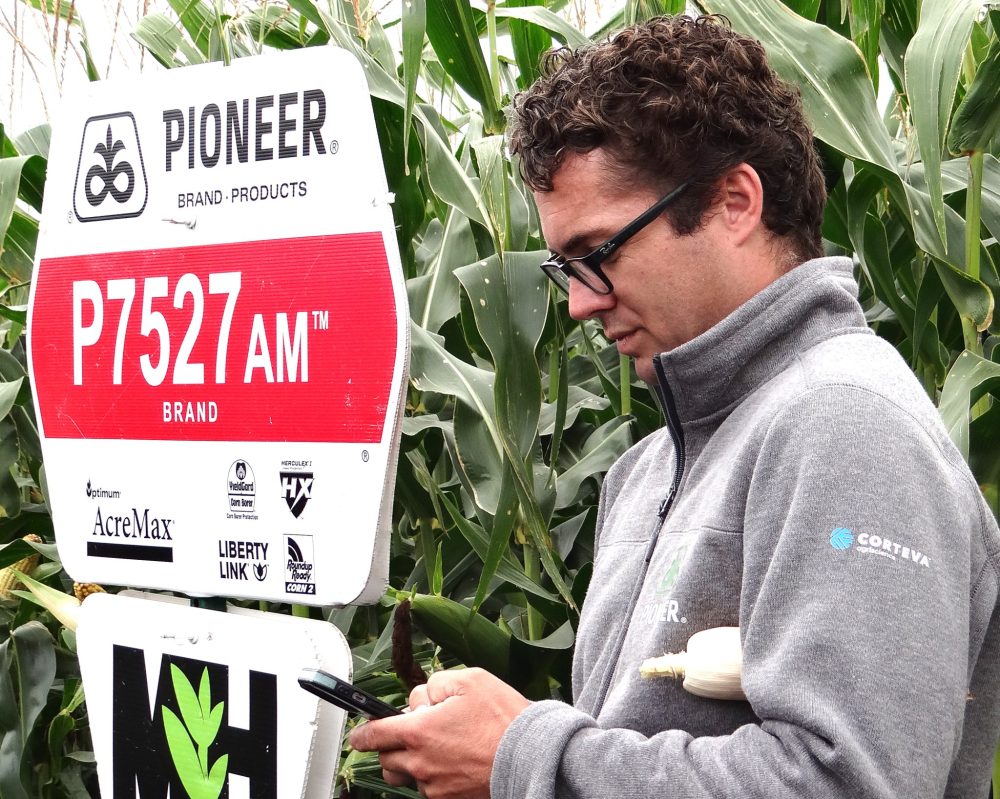
Soybeans are delivered to the customer in bulk or picked up by producers in tenders or trucks. Corn proboxes or bags are mostly delivered except at pickup days. The yard at Dufresne grew as the business grew, with four bins going up in 2005 and another four added five years later.
There has been an evolution in soybeans throughout the North American marketplace. Adaptable genetic varieties combined with herbicide tolerance traits have brought early maturing soybeans to this area. Two decades ago, there were no soybeans of any relevance in the Southeast, and now it has become a rotational crop on most every farm.
Grain corn acres have increased a lot over the years, as well. Genetic development has stimulated that growth and the use of manure as fertilizer from all the livestock operations has played a major role as well, Hutlet explains.
“There is no better plant than corn to recycle the nutrients in soil applied manure and make efficient use of it.”
Corn and soybeans are the biggest driver of sales for Marc Hutlet Seeds, which also handles alfalfa and canola. It hasn’t always been that way and when Marc first started back in the early 1980’s, it took 85 to 90 days for grain corn to mature and yields were inevitably lower.
Today, 75-day corn is producing up to 50 bushels more per acre than that first corn.
“Herbicide tolerance, improved disease protection and pest resistance to European Corn Borer as well as Northern Corn Root worm have turned that crop around.”
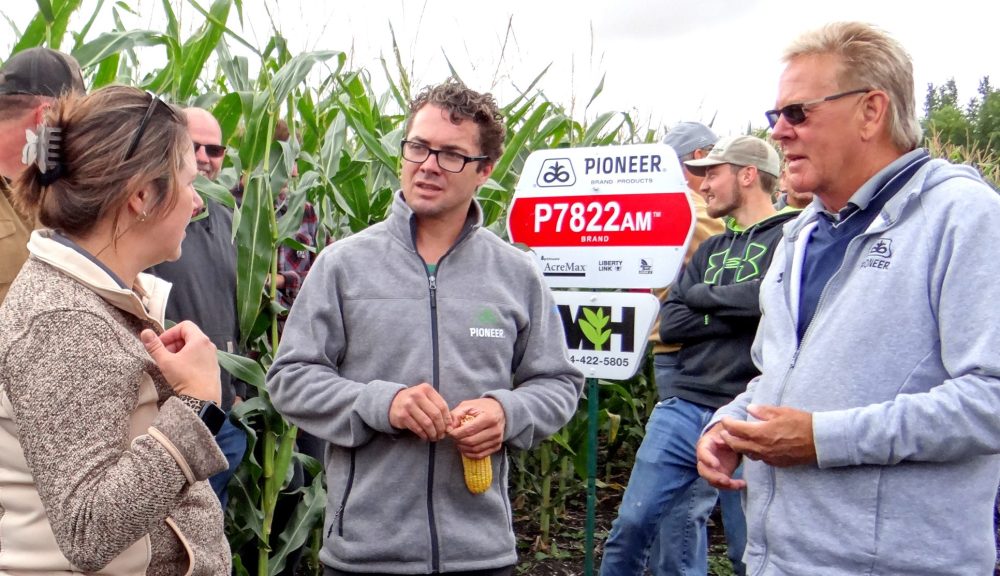
But even as the business expands and sales continue to grow, Hutlet says there are no plans to increase the area Marc Hutlet Seeds has traditionally served, which is a wide swath of southeastern Manitoba.
The diversity of dairy, poultry, swine and cash crops in this corner of the province is a phenomenal mix and provides Marc Hutlet Seeds with ever-increasing soybean and corn acreage.
Hutlet says he is persistent in trying to connect as much as possible with his customers and has spent the past two decades working on finding out what their needs are, while gaining a reputation as an advisor.
One of the important facets of gaining the information needed involves roughly 100 corn/soybean trials Hutlet Seeds conducts every growing season, comparing yields on 500 different strips of numerous varieties of corn and soybeans.
During the growing season, Marc Hutlet Seeds provides a weekly video that can be picked up on YouTube to help producers alleviate problems that may arise along the way. Satellite imagery has replaced the drones that used to be employed to create videos that provide instantaneous recommendations to producers.
A website developed more than a dozen years ago gets reports on yield weight comparisons to customers in a hurry and saves an enormous amount of mailing, which used to be the case. Years ago, Marc Hutlet Seeds would mail out 350 copies of the report. Now farmers can visit the website and download the information or, if they choose, receive it by e-mail.
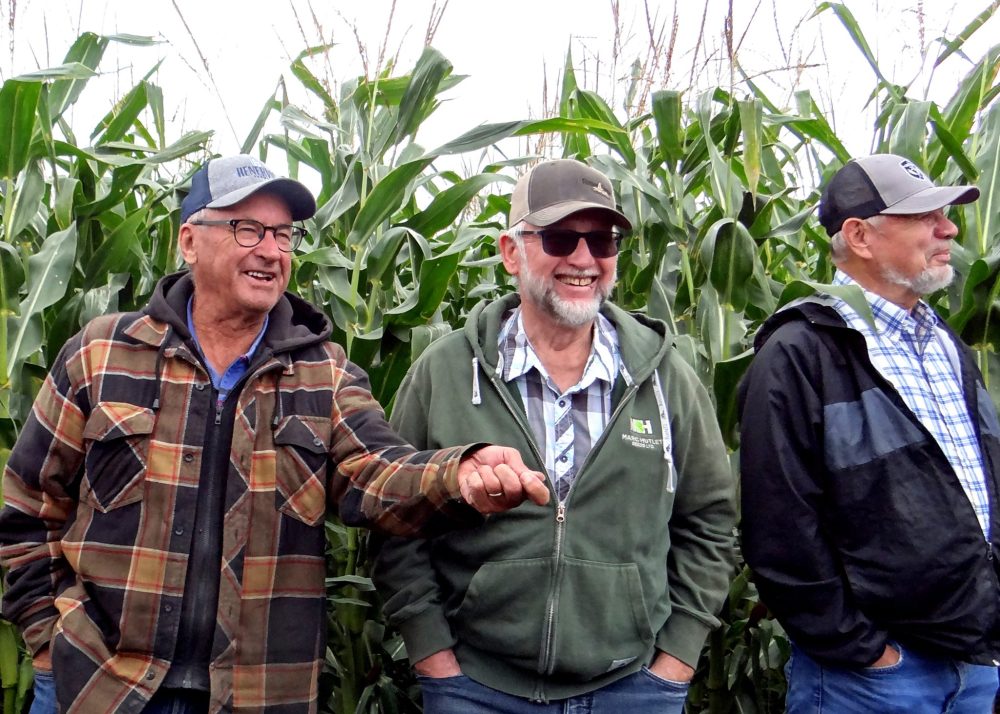
More field scouting helps producers manage their crops and is just one of the perks of being a Marc Hutlet Seeds customer.
Hutlet also hosts regular growers’ meetings, takes customers to Jets, Bomber, Pistons games and offers snowmobile rides in the off-season.
“It is important to keep in contact with producers and it is not always just about selling something.”
